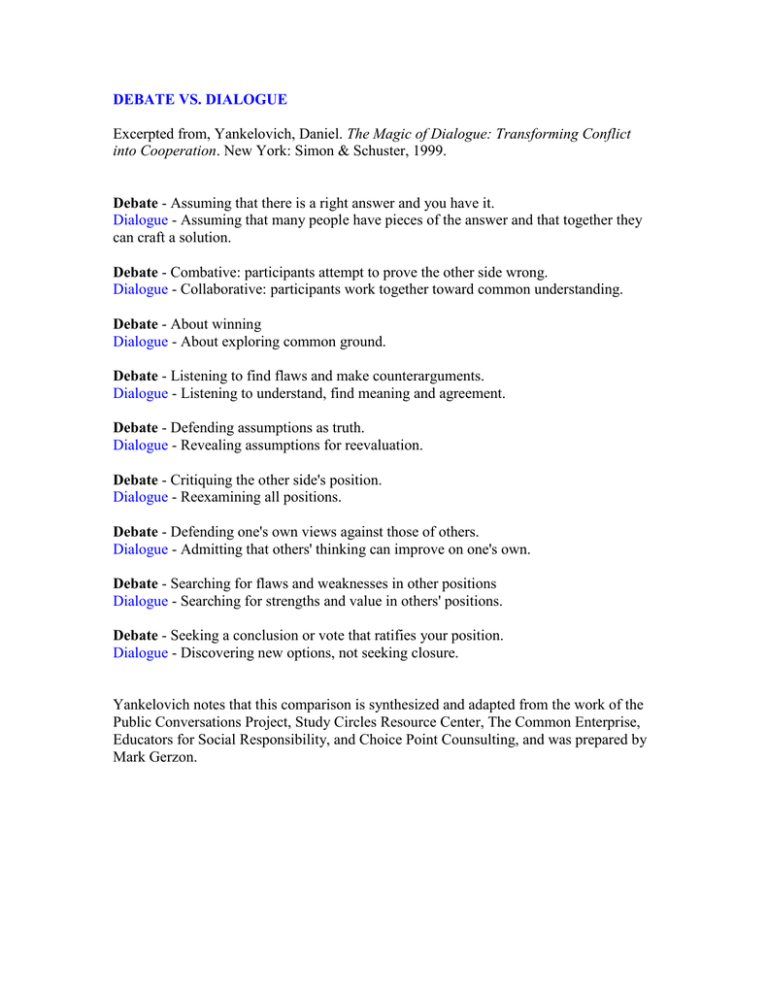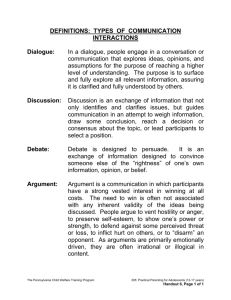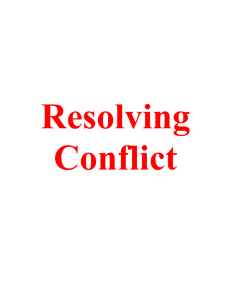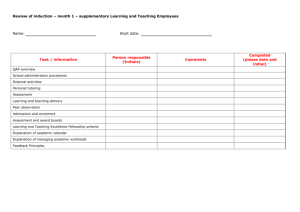DEBATE VS. DIALOGUE The Magic of Dialogue: Transforming Conflict
advertisement

DEBATE VS. DIALOGUE Excerpted from, Yankelovich, Daniel. The Magic of Dialogue: Transforming Conflict into Cooperation. New York: Simon & Schuster, 1999. Debate - Assuming that there is a right answer and you have it. Dialogue - Assuming that many people have pieces of the answer and that together they can craft a solution. Debate - Combative: participants attempt to prove the other side wrong. Dialogue - Collaborative: participants work together toward common understanding. Debate - About winning Dialogue - About exploring common ground. Debate - Listening to find flaws and make counterarguments. Dialogue - Listening to understand, find meaning and agreement. Debate - Defending assumptions as truth. Dialogue - Revealing assumptions for reevaluation. Debate - Critiquing the other side's position. Dialogue - Reexamining all positions. Debate - Defending one's own views against those of others. Dialogue - Admitting that others' thinking can improve on one's own. Debate - Searching for flaws and weaknesses in other positions Dialogue - Searching for strengths and value in others' positions. Debate - Seeking a conclusion or vote that ratifies your position. Dialogue - Discovering new options, not seeking closure. Yankelovich notes that this comparison is synthesized and adapted from the work of the Public Conversations Project, Study Circles Resource Center, The Common Enterprise, Educators for Social Responsibility, and Choice Point Counsulting, and was prepared by Mark Gerzon.




